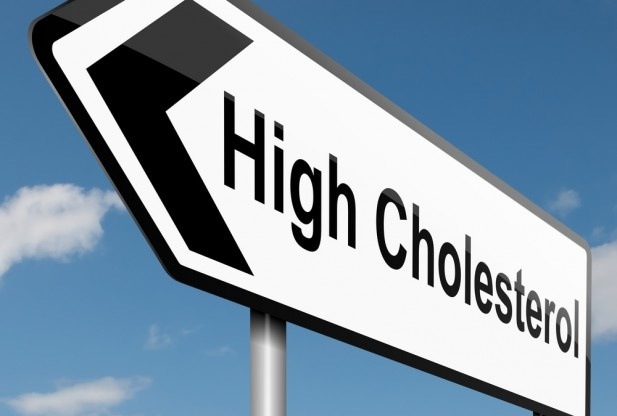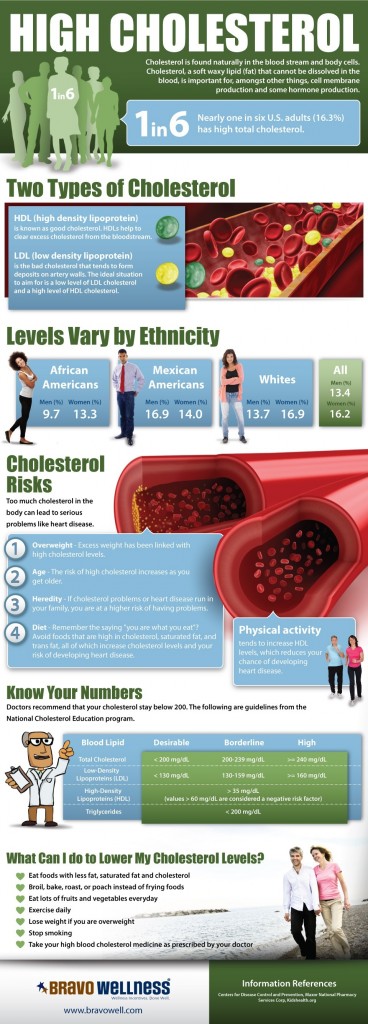
I mentioned in an earlier post that blood pressure is a silent killer. High cholesterol is another silent health risk that can be deadly. Do you know your cholesterol numbers? According to a Center for Disease Control report, more Americans are aware of their cholesterol levels. That’s great! Right?
Then why do nearly 1/6 United States Adults still have high total cholesterol?
Perhaps we need to take a closer look at cholesterol. You know the drill: Cholesterol 101. What is cholesterol? How can it be deadly? Today, let’s focus on LDL, or the “bad” cholesterol, and how, if not managed properly, it can have health risks.
Cholesterol is a waxy substance found in your blood’s fats (lipids). While your body needs cholesterol to continue building healthy cells, having high cholesterol can increase your risk of heart disease and stroke.
When you have high cholesterol, you may develop fatty deposits in your blood vessels. Eventually, these deposits will make blood flow through your arteries difficult. Your heart may not get as much oxygen-rich blood as it needs, which increases the risk of a heart attack. Decreased blood flow to your brain can cause a stroke.

Symptoms of High Cholesterol:
High cholesterol has no symptoms. A blood test is the only way to detect high cholesterol.
When to see a doctor:
Those of us at a certain age have already had a lipid panel or lipid profile done. However, if you haven’t done so, you must complete the lipid panel to know your results/baseline cholesterol test, then retest at least every five years. If your results aren’t within desirable ranges, your doctor may recommend more frequent measurements. Your doctor may also suggest you have more frequent tests if you have a family history of high cholesterol, heart disease, or other risk factors, such as smoking, diabetes (see Sugar Appeal post), or high blood pressure (see Silent But Deadly Post).
Blood levels for LDL Cholesterol (not total cholesterol):
- Desirable: < 130 mg/dL
- Borderline: 130 – 159 mg/dL
- High: > = 160 mg/dL
Treatment Option (s):

Statins – among the most prescribed medications for lowering cholesterol – block a substance your liver needs to make cholesterol. This causes your liver to remove cholesterol from your blood. Statins may also help your body reabsorb cholesterol from built-up deposits on your artery walls.
No matter what medication is prescribed to lower one’s cholesterol, it is most important to continue making lifestyle modifications, such as eating heart-healthy foods, exercising regularly, quitting smoking, and losing extra weight.
Don’t allow inactivity, obesity, and an unhealthy diet to take you on an unhealthy health detour.
Know Your Cholesterol Numbers!

What a great explanation of why watching your cholesterol is so important. High cholesterol can lead to stroke and heart attacks! There’sno time like now to change diet and most of all excercise.
Yes!, I agree with your comments. As I researched this information, I was speaking to myself as well. Now is the time to change diet and get plenty of exercise.